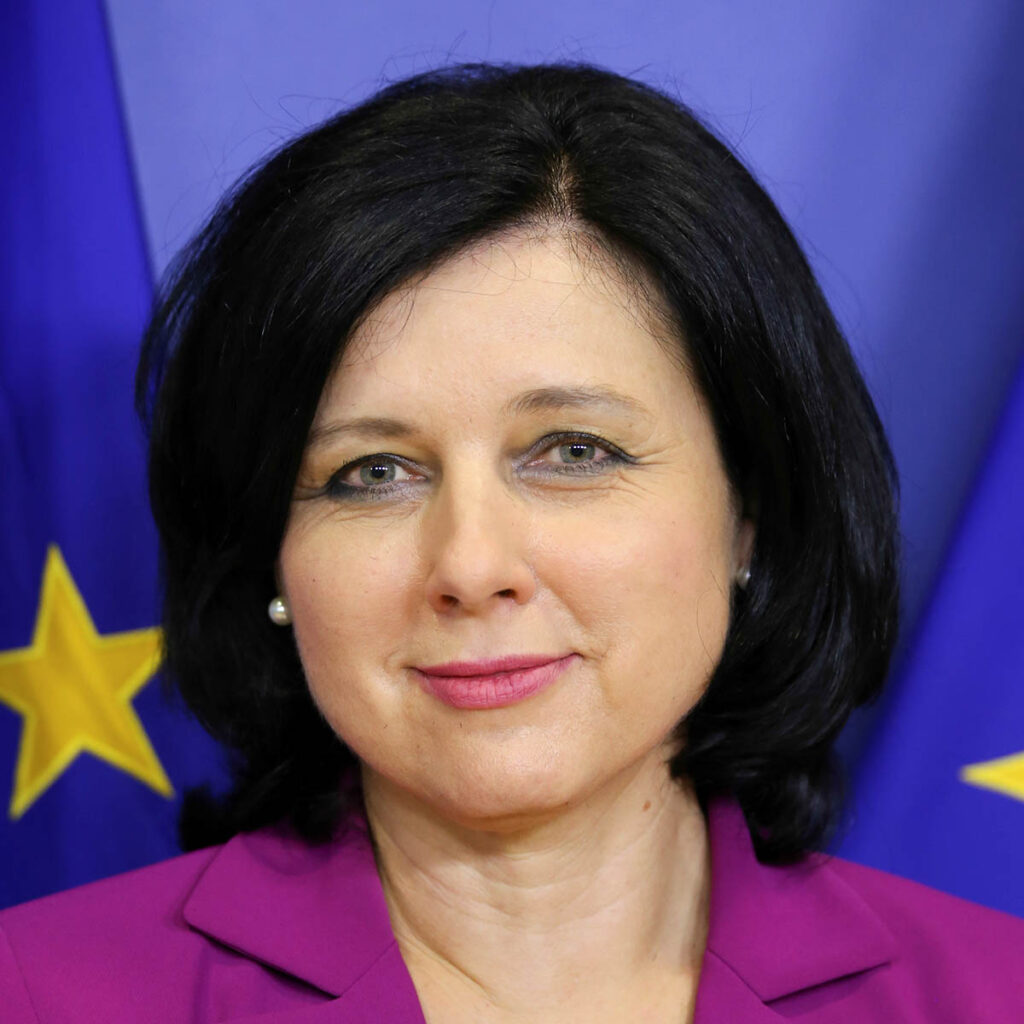The European Commission considers that the crisis generated by covid-19 revealed a “democratic problem” for the media in Europe, namely due to the decrease in revenues, stressing that “economic pressure cannot become political pressure”.
“The covid-19 crisis has highlighted the crucial role of journalists, who have been at the forefront, at times putting their health at risk and working in very difficult conditions, but the crisis has also revealed […] a decline in revenue and this is not only an economic problem, but also a democratic problem”, declared the vice-president of the European Commission with the portfolio of Values and Transparency, Vera Jourova, speaking with some European media, including the Lusa agency.
In reaction to the study Media Pluralism Monitor released today - which indicates that the media in Europe face multiple threats, such as the increase in harassment of journalists, namely by politicians, the growing economic uncertainty and the online sphere failing to reinforce pluralism -, Vera Jourova noted that such difficulties were “amplified by the crisis” generated by the pandemic, although they existed before.
Therefore, the official highlighted the need to “safeguard basic working conditions for journalists”, as well as “their protection and their rights”, at a time when “the media are losing money, but also people”.
Referring to the recent murder cases of journalists, namely the Maltese Daphne Caruana Galizia, in 2017, Vera Jourova warned that “there are many, many journalists under threat”, and “women are the most affected”.
“This is reflected, from the outset, in 'online' violence […], with attacks on journalists and the spread of hate speech, unfortunately at the hands of politicians, and this is unacceptable,” he added.
And he stressed: “Economic pressure cannot become political pressure”.
Two European countries with lawsuits filed for alleged violations of the rule of law, Hungary and Poland, are also among the worst ranked in the study. Media Pluralism Monitor, with Vera Jourova “expressing deep concern” over attacks on the press in these Member States.
“We are following very closely what happens in these Member States with greater risks”, he assured.
In Hungary, for example, businessmen linked to the prime minister, Viktor Orbán, acquired various media, creating large pro-government media clusters.
One of the last independent titles in the country, the Index, is now in the 'target' of Orbán's executive, which has already led to the removal of the director of the online publication, a situation that Vera Jourova said she was following.
Stressing that, for the European Commission, “support to the media is a priority”, the vice-president of the community executive also highlighted that, in the Multiannual Financial Framework 2021-2017, “601 million euros are foreseen to support projects related to the media pluralism”.
Even so, for Vera Jourova, “it is primarily up to the Member States” to ensure press freedom in their countries, although she admits that “state support puts pressure on the editorial line”.
Present at this digital meeting with European journalists, the European Commissioner for the Internal Market, Thierry Breton, defended that “the regulatory bodies [in each country] must play an increasingly important role” to prevent abuses against journalists.
Thierry Breton also acknowledged the “great risk facing the industry, especially newspapers and local media”.
The European University Institute today released its new report, which has been updated for the Digital Age with the inclusion of several indicators and variables related to the digital transformation of the media.
“The study confirms the trend observed in the media sector in recent years: journalists are increasingly victims of harassment, the sustainability of the news industry is at risk across Europe, while the role of guardian ['gatekeeping'] of the digital platforms is on the rise”, reads the statement about the study.
According to the report, "none of the countries analyzed is free from the risks to media pluralism".
Portugal is one of the countries targeted in the document, although it is classified as “low risk” in many of the indicators evaluated.



















Comments